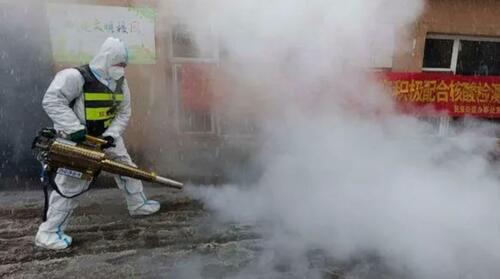Beijing is learning the hard way that its "COVID Zero" approach
toward combating the virus is having serious drawbacks. For example,
while the US and Europe continue to roll back their tightening measures,
a growing number of Chinese citizens are facing draconian lockdowns
similar to the one imposed on Wuhan during the early days of the
outbreak two years ago. China reported 1,437 cases across dozens of cities on Monday. That’s a four-fold increase within the span of a week. Although
the record number of new cases being reported is testing the
feasibility of China’s zero-tolerance approach, there is still no sign
that the country's leadership is thinking about abandoning the policy
altogether. Authorities announced on Monday that 24 million people in Jilin Province would be forced into lockdown. That
number includes the population of the previously locked down city of
Changchun. Jilin's lockdown marks the first province-wide lockdown since
that of Wuhan and Hubei in January 2020. The lockdown in Shenzhen threatens manufacturing and tech production in a city that's home to Huawei and Tencent, along with one of the country's main ports. As we noted earlier, the lockdown in Shenzhen has forced Apple supplier Foxconn to halt production of iPhones, which weighed on Apple shares earlier Monday. While the lockdowns were initially given a short-term timeline of a week, authorities can always choose to extend them. In
keeping with the CCP's propaganda, Professor Heiwai Tang at Hong Kong
University told ABC News that he doesn't expect these week-long
lockdowns to have a significant impact on GDP growth. "It seems the lockdowns will be shorter this time with more tracking, which means a short disruption of work and production," Tang said. "If it ends up lasting for weeks it’s another issue, including inflation risks." Looking back, Professor Michael Song from Hong Kong’s Chinese
University estimated that the two-month lockdown in Wuhan lopped 2
percentage points off China's GDP growth. Shanghai-based
virologist Zhang Wenhong described the latest outbreak as "the most
difficult moment in the past two years" of China's efforts to stamp out
the virus. Shanghai, China's financial capital, has so far avoided a full-scale lockdown, but has faced some restrictions.









